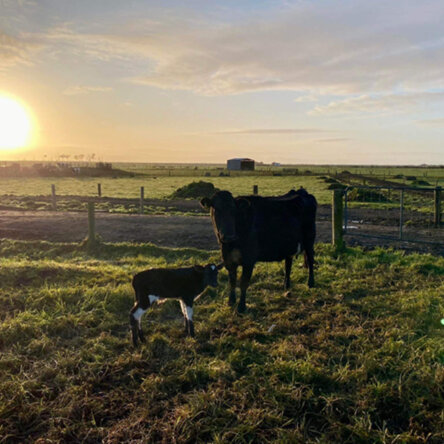Franklin Vets
Franklin Vets - excellence in veterinary care for dairy, farming, lifestyle, equine and household pets. BESTPRACTICE ACCREDITED NZ.
Your account is powered by Storbie. To edit your profile visit my.storbie.com
Your account is powered by Storbie. To edit your profile visit my.storbie.com

How well cows are transitioned from dry to milking has a major influence on how well they come into peak milk production and get back in calf. Use of diet calculators, feed budgets and spring rotation planners alongside feed and blood tests can be used to regularly check and adjust diets and mineral dosing.
Most mastitis infections are picked up around the time a cow calves, so prevention measures are best focussed on freshly calved cows. Use of the cleanest pasture possible for springer and colostrum cows will minimise exposure of these cows to bugs. Milking freshly calved cows as soon as possible after they calve reduces their risk of developing mastitis. Trimming tails, washing ¬¬and drying heavily contaminated udders, stripping quarters daily to identify and treat mastitis early and careful application of teat spray are also important mastitis prevention strategies. Keep in touch with your veterinarian if you are experiencing more than 8 cases of mastitis per 100 cows calved, high or rising bulk milk SCC or if any cows develop toxic mastitis.
Use of cleanest pasture possible for calves at birth, prompt pick up from paddocks, spraying of navels with iodine prior to transport to calf sheds and feeding with good quality (tested), warm colostrum as soon as possible after birth (within 4-6 hours) are key steps. The use of Multimin as calves arrive in calf sheds can help prime calf immune systems. Continued attention to shed use and hygiene as the season progresses is also important.
Ideally metrichecking is done in two weekly batches of cows calved at least two weeks to allow early treatment and recovery before mating.
With all your careful focus, hopefully, you will be set up for a disease-free spring. But do remember we are here to help. Contact your veterinarian to discuss how we can help or if problems do start to occur – the sooner the causes are identified, and prevention put in place the smaller the overall impact.
Wishing you all a quick and smooth calving!
Dr Ilyse Jennens - Farm Vet & Branch Manager Franklin Vets, Waitakaruru
Franklin Vets - excellence in veterinary care for dairy, farming, lifestyle, equine and household pets. BESTPRACTICE ACCREDITED NZ.



